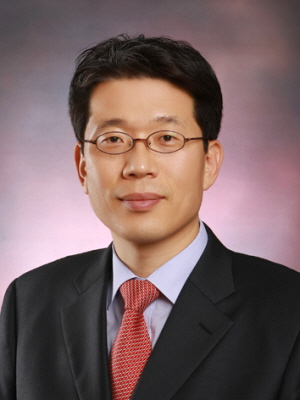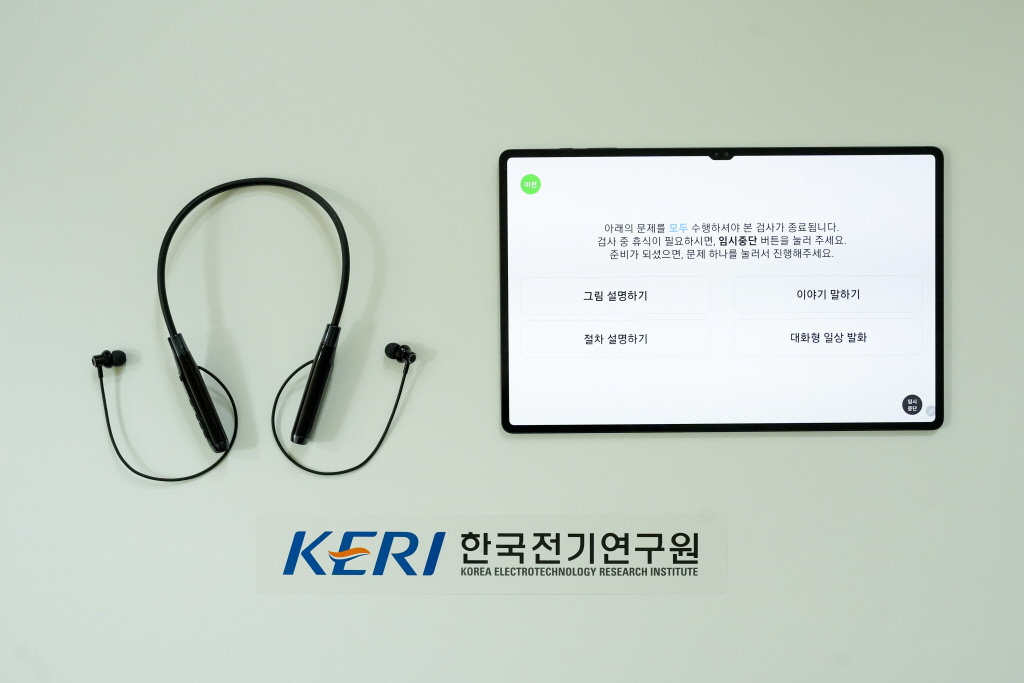한국전기연구원(KERI) 전기의료기기연구단 청각인지 뇌기능 연구팀의 박영진 박사팀이 노년층의 일상생활 대화 분석을 통해 일반적인 치매 전단계인 ‘경도인지장애‘의 고위험군을 조기에 발견할 수 있는 기술개발에 도전해 많은 주목을 받고 있다.
전기연, 노년층 일상생활 발화 빅데이터 구축 사업 순항

빅데이터를 이용해 치매 전단계를 조기 선별할 수 있는 기술이 개발돼 향후 치매 예방에 큰 도움을 줄 것으로 기대가 모아진다.
한국전기연구원(KERI)은 전기의료기기연구단 청각인지 뇌기능 연구팀의 박영진 박사팀이 노년층의 일상생활 대화 분석을 통해 일반적인 치매 전단계인 ‘경도인지장애‘의 고위험군을 조기에 발견할 수 있는 기술개발에 도전해 많은 주목을 받고 있다고 7일 밝혔다.
급속한 고령화와 더불어 치매 유병률은 계속 증가하고 있다. 중앙치매센터가 최근 발표한 ‘중앙치매센터 연차보고서’에서는 2023년 기준 국내 65세 이상 노인 10명 중 1명은 치매를 앓고 있는 것으로 나타나고 있다.
보건복지부의 제4차 치매관리종합계획에 따르면 이 숫자는 지속적으로 증가해, 2030년에는 136만명, 2050년에는 302만명을 넘어설 것으로 전망하고 있다.
전 세계적으로도 2030년에 7,500만명으로 예상되는 등 치매는 반드시 해결해야 할 글로벌 이슈로 떠오르고 있다.
대표적으로 치매를 일으키는 퇴행성 뇌 질환인 알츠하이머병은 오랜 기간 동안 진행되지만 초기에 증상을 발견하지 못하여 치매 단계로 진입하거나, 혹은 환자가 지자체 치매안심센터나 병원을 직접 방문하여 뒤늦게 진단받는 경우가 많다.
더욱이 혼자 사는 어르신은 매년 센터를 방문해서 관리를 받으면 좋지만, 신체적 거동의 어려움 및 불편함으로 센터를 방문하지 않는 경우가 대부분이라 돌봄 사각지대에 놓이기도 한다.
이러한 상황을 해결하기 위해 KERI는 국가과학기술연구회 창의형융합연구사업의 지원을 받아 ‘노년층의 일상생활 발화 빅데이터 구축을 통한 AI 기반 퇴행성 뇌기능 저하 평가 기술 개발’ 사업을 총괄기관으로서 수행하고 있다.
KIST, ETRI, 서울대병원, 이화여대가 공동연구기관 및 위탁연구기관으로 참여하고 있다.
발화(發話, utterance)는 책을 읽거나 질문에 답하기 등 언어를 음성으로 표현하는 것이다. 사업단은 ‘노인 친화형 발화 데이터 수집 기기’를 개발하고, 여기서 정보 빅데이터(발화, 청각인지 뇌파, 청력)를 수집한 뒤 인공지능(AI)을 이용하여 경도인지장애 고위험 노인들을 선별 및 모니터링하는 작업을 하고 있다. 경도인지장애 단계에서 고위험군 선별 및 관리가 필요한 이유는 65세 이상 정상인의 치매 발생이 매년 1∼2%인 반면에 경도인지장애 환자는 10∼15%이기 때문이다. 6년 장기 추적까지 간다면 경도인지장애 환자의 80%가 치매에 걸리는 것으로 전문가들은 보고 있다.
기술의 목표는 편리함과 정확성이다. 가볍게 보청기 같은 기기를 착용하고, 신경인지기능 검사기기 앱을 설치하면 된다. 사업단은 이 앱을 통해 일상생활 환경에서 주로 활용되는 발화 패러다임을 분석하여 평균 20회 정도의 대화 턴(turn) 발화 정보만으로도 80% 이상의 정확성(민감도)으로 퇴행성 뇌기능 저하 고위험군을 선별한다는 계획이다.
특히 어르신들의 발화는 조음(발음) 장애로 음성 인식이 더 까다롭고, 사투리를 사용하거나, 난청으로 질문을 제대로 듣지 못하는 등 어려움이 더 많다. 사업단에서는 AI 및 청각인지 디코드 기술 등을 통해 이러한 부분들을 지속적으로 해결해 가고 있다.
KERI는 개발된 연구 결과를 활용하여 경기도 안산시 상록구노인복지관을 포함한 지역사회 어르신 약 100명을 대상으로 실증을 진행 중이며, 현재까지 6명의 경도인지장애 환자 및 7명의 의심 대상자를 선별하는 데 성공했다. 이어 올해 8월까지 추가로 150명의 복지관 어르신에 대한 실증을 통해 안산시 거주 노인들의 헬스케어 지원 및 기술을 고도화할 계획이고, 이후에도 실증을 희망하는 지자체를 발굴해 대상 범위를 천명까지 확대한다는 목표다.
더 나아가 해당 기술은 수집된 데이터를 기반으로 대상자 맞춤형 인지기능 개선까지 연계할 수 있어 치매 위기를 사전에 관리하여 증상을 늦추는 데도 적용 가능해 파급력이 매우 클 것으로 보고 있다.
KERI 박영진 박사는 “치매 조기 발견을 통해 치료시기를 1년만 앞당겨도 1인당 수천만 원의 의료비 부담을 줄이는 것은 물론, 천문학적인 국가적·사회적 비용 절감 효과도 기대할 수 있고, 무엇보다 더 오랫동안 가족과 함께 할 수 있다는 장점이 있다”라며 “사업단에서는 청력 증강기기 기반의 청력 인지 기능 개선, 생성형 AI 활용한 신경인지기능 검사기기의 정확도를 높이는 연구를 하고 있다”라고 전했다. 이어 “집에서 편리하게 짧은 시간 검사 참여로 경도인지장애 고위험군 선별이 가능할 수 있도록 좋은 결과를 만들겠다”라는 포부를 밝혔다.
한편 KERI는 과학기술정보통신부 국가과학기술연구회 산하 정부출연연구기관이다. 현재 연구원은 전기의료기기연구단을 중심으로 초고령 사회 노년층의 행복한 생활을 지원하고, 난청과 치매와 같은 국가적·사회적 문제 해결을 위해 쉽고 편리한 ‘고품질 노년층 디지털 헬스케어 기기’를 꾸준히 개발하고 있다.

 빅데이터를 이용해 치매 전단계를 조기 선별할 수 있는 기술이 개발돼 향후 치매 예방에 큰 도움을 줄 것으로 기대가 모아진다.
빅데이터를 이용해 치매 전단계를 조기 선별할 수 있는 기술이 개발돼 향후 치매 예방에 큰 도움을 줄 것으로 기대가 모아진다.